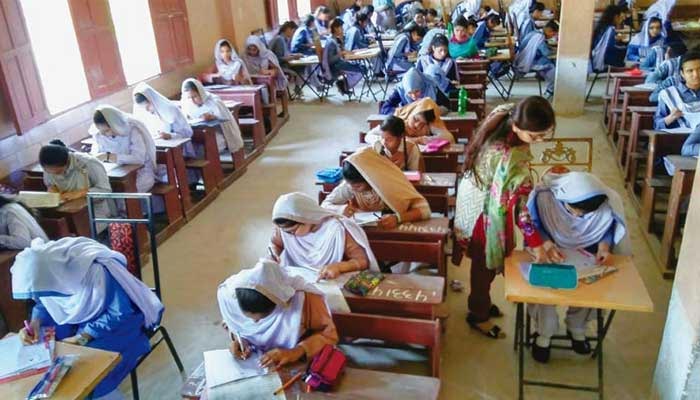The Sindh government has officially introduced a new grading policy for matriculation and intermediate level examinations, making it the first province in Pakistan to implement such reforms.
According to a notification issued by the Department of Boards and Universities, this new policy will take effect in 2025, replacing the traditional system of awarding marks, and ranking students with grades instead.
Under the new policy, students will no longer receive first, second, or third positions. Instead, they will be graded based on the percentage of marks obtained. The formula, aligned with the Inter-Board Committee of Chairmen's (IBCC) guidelines, will see students scoring 95% or more receiving an "Exceptional A" grade. Those with 90% marks will receive an "Excellent A" grade, while a "Best A" will also be awarded to students with 85% marks.
Other grade categories include a "Very Good B" for 80% marks, "Good B" for 75%, and "Fair Good B" for 70%. Students scoring 60% will receive an "Above Average C" grade, while those with 50% marks will be given an "Average D" grade. Marks between 40% and 50% will earn an "E" grade, indicating a "Below Average" performance, while students scoring less than 40% will be awarded an "Unsatisfactory F" grade.
This policy aims to bring a more holistic approach to student evaluation by focusing on overall academic performance rather than competitive ranking, fostering a more inclusive and less stressful academic environment.



























